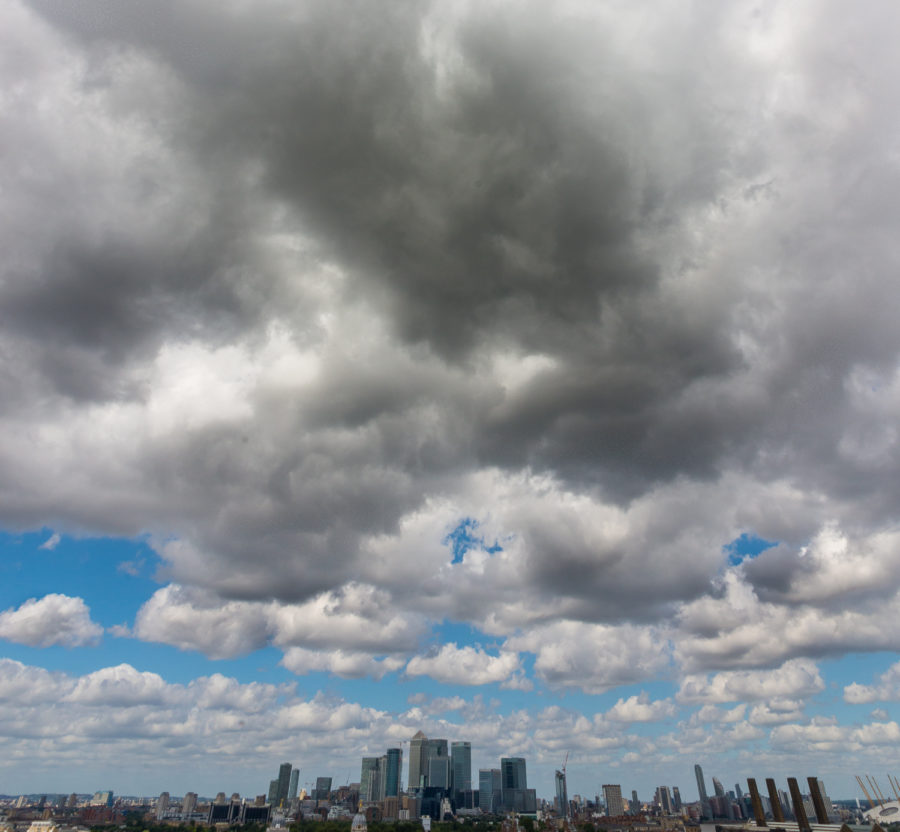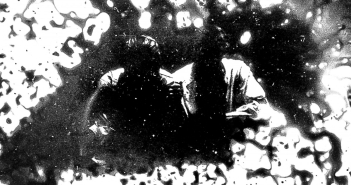As a freshly UK-embedded Irish barrister I am adjusting from confronting Ireland’s problems to addressing those of my new home. Worlds’apart, in a global village. In terms of Brexit, as far as the Irish media is concerned the Backstop, and a recrudescence of the ‘Irish Question’, is the only story, but from my perspective the border issue pales by comparison with the precarious position of Irish nationals resident on the UK mainland. All bets are off. In the Westminster extradition courts there is a growing apprehension among all non-nationals, amidst a descent into political farce. Eastern Europeans in particular are on red alert.
I recently immersed myself in the Brexit literature (word used advisedly), a choice not unlike Christopher Hitchens consenting to undergo waterboarding. Most offer blow-by-blow accounts, and are an utter waste of time.
By far the most useful and simultaneously useless book to emerge has been from that august man of letters, Irish Times columnist Fintan O’Toole. His Heroic Failure Brexit and The Politics of Pain (London, Apollo, 2018) suffers from a cultural myopia bordering on xenophobia. This account by an Irish-resident journalist is useless at providing any insight into the English character, but serves, nonetheless, as a useful vantage on the general superficiality of Irish political discourse.
O’Toole rightly inveighs against neo-liberalism throughout his text, but fails to recognise the extent to which the Brexit vote was in certain respects a reaction to the rampages of this pernicious ideology of free market free-for-all. For some, Brexit embodies an attempt to preserve an innate decency in the English character, rather than selling-out to multinational or Eurocractic control.
There endures a residue of decency in ‘old’ England – informed by secular and Christian socialist or liberal values – which are dying out rather faster in Ireland. Moreover, many argue that the UK should run a mile from the imposition of the austerity policies that liquidated the social structures of Ireland and Greece.
O’Toole’s argument that Jacob Rees-Mogg, and others, are seeking detachment for the sake of further wealth accumulation is valid, but the denunciation of Brexit as economic folly and a lapse towards an unrealistic autarky is less persuasive. Seeing Brexit as simply a manifestation of national self-pity, combining grievance and superiority, or a racist attempt to curb immigration, neglects to consider the rising indignation that many British justifiably feel at the encroachment of faceless bureaucrats intent on imposing austerity. This is coupled with a rising contempt for a New Labour-led political correctness that never confronted the downsides, in terms of labour protection and integration, of mass migration.
It is not simply a product of racism, a label O’Toole is too fond of flinging. Quoting Enoch Powell’s ‘Rivers of Blood’ speech is the sort of simplification favoured by those who reach for the Hitler label at student debates.
Lazy Stereotypes
Neo-liberalism favours immigration in order to drive down labour costs. O’Toole is thus passively endorsing that which he purports to condemn when he decries how lazy the UK workforce has become. He ought to acknowledge that the Irish workforce has not always been renowned for its commitment, which protected some of us from a premature death through exhaustion. Indeed the flâneur is a fabled specimen in Irish literature.
As the jokes runs (in a droll Dublin accent): an Irish professor of literature was asked by his Spanish host at a conference in Spain whether there was a Gaelic word similar to the Spanish mañana. ‘Sure’ said the professor, ‘we have five words similar to mañana, but none convey quite the same sense of urgency.’
Like O’Toole, Taoiseach Leo Varadkar favours a productive, early-rising population, shoehorned into unthinking and robotic work, leading to death on the instalment plan; zero hour contracts; meaningless corporate jobs; and the siphoning off of wealth to vulture funds controlled by off-shore multi-nationals.
I vote for more leisure time. Who knows, it might lead the charmless O’Toole, and Varadkar his intellectual consort, to greater depths of analysis and cultural refinement.
Fintan O’Toole fails to comprehend that Ireland is the perfect little neo-liberal shit storm, which has prompted the aforementioned Rees-Mogg to invest in our little meltdown, after the double-whammy of liquidation by the ECB and American transitional corporations.
Britain, in its post-Brexit phase, cannot be described, as O’Toole purports to, in a reductive way. Yes, it is a society in existential crisis, but with many cross-currents. One cannot reduce this to a superiority complex, or colonial hangover. The pantomime villain qualities ascribed by O’Toole to the UK’s political caste are increasingly evident in politicians the world over.
Boris Johnson may be an opportunistic clown, but he rarely put a foot wrong as Mayor of London. His books are even sometimes well written. If he is a clown he is a more civilised prankster than our gang of horribles: the tasteless Varadkar, gombeen Kenny, blathering drunk Cowen, and the good ol’ boys of the Law Library.
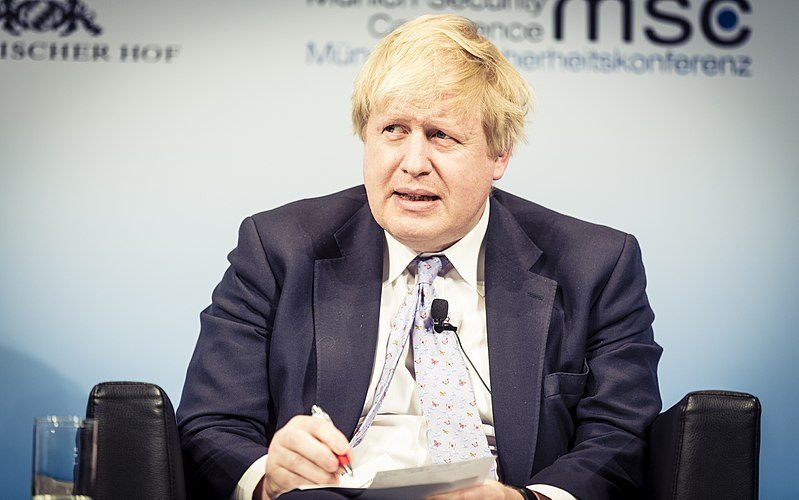
Boris Johnson: a superior clown to our own vaudeville acts..
O’Toole commits the common Irish error of confusing speaking seriously on serious issues, which he does not understand, with being serious. Gravitas should be leavened with wit, not outright hysterical or self-righteous condemnation. The clownish but observant Johnson actually realises the necessity for laughter in the darkness, in common with the more sinister congeniality of the arch-Machiavellian Michael Gove. They are smarter than O’Toole allows.
Turning the lens
The unvarying narrative in the mainstream Irish media is that Brexit is a disaster, not just for Ireland but also the UK. About this I am not so sure. Cultural imperialism and splendid isolationism are distasteful aspects of the British character, but Europe was always an uncomfortable fit for other reasons too. Snap judgments are misleading.
Irish commentaries inevitably turn to what is in it for ‘us’, whether Europe, Brexit or anything else. Grubby calculation is an increasingly odious national characteristic, which clouds any assessment of whether it is the right path from a British perspective.
Let us recall that the Irish brand of disaster capitalism involves the state providing tax breaks for multi-nationals, and appeasing Canadian and American vulture funds; the destruction of not just the working class but increasingly the middle. According to Social Justice Ireland, last year 790,000 people were living in poverty, of whom 250,000 were children.[i] How is this possible when GDP per capita is at almost seventy-five thousand euro?
Though he condemns neo-liberalism, and indeed endorses legitimate outrage against European excesses, O’Toole is incapable of turning his lens on Ireland’s failings; or the receding possibility of reforming an EU increasingly beholden to corporate lobbyists.
Superiority and self-pity are characteristic of Irish attitudes too: the no longer purring Celtic Tiger is a Paper Tiger. For generations we endured the lachrymose nationalism of a failing state, now we talk ourselves up as the best little country in the world. As Flann O’ Brians put it: ‘Moderation we find is a difficult thing to get in this country.’[ii]
This sentimental patriotism fed into a grotesque over-estimate of our exceptionalism, which now permits the Mussolini-lite fascism, embodied by the grandstanding Varadkar, to go unchecked. Give me the incrementalism and resistance to the grandiosity of grand ideals that are a hallmark of historic British decency – tempering other aspects of the national character – any day.
The English Sausage
On a more mundane level, over breakfast in Bloomsbury, I reflected on the humble English sausage which helps gives an appreciation of the national character. Reading O’Toole’s overblown account of the British objection to EU bureaucratic regulation I found it a pity that he failed to mention the British sausage.
The sausage is a geopolitical signifier. Its fate a precursor to Brexit, the fons et origo of all that has gone horribly wrong.
Cast minds back to a kerfuffle at the inception of the EU, regarding the standardisation of the British sausage, and how incensed people became. With hindsight we see what could have gone wrong, and now has.
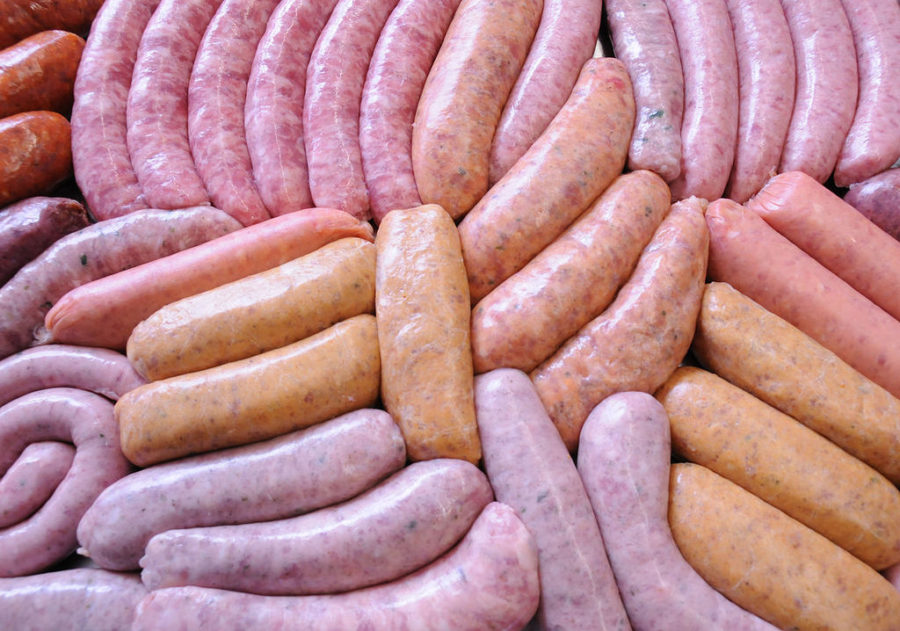
As an Irishman, albeit one who is partly Austrian, and an internationalist – effectively now a mongrel warrior – I recall how we derided the British for being so small-minded about their precious sausage. Hindsight is of course twenty-twenty vision. The British were perhaps right, then and now. They were outraged, and continue to be, by a foreign order of bean counters telling them what to do, and preaching to them about standards. And what role models and standards emanate from the EU exactly?
Then the story descended into silly season farce, but I think it remains emblematic and prescient of the tensions that have always existed between Britain and the EU.
If they regulate a sausage then who is next among the pantheon of eccentrics that populate English public life, excoriated by O’Toole. People are increasingly standardised, like sausages, in modern Ireland. As an unapologetic eccentric, I am dismissive of technocratic robots and muppets. If the political consensus leads to neo-liberalism then give me the oddness O’Toole attacks, any day.
The reclamation by O’Toole of British decency towards the end of the book, citing Orwell and parts of the Bloomsbury set, does not atone for the cack-handedness of his analysis of the English character.
Face it Fintan there is something rotten in the state of Brussels
Let us focus on what has been wrong with the EU from the outset, and which O’Toole unsatisfactorily broaches. Foremost has been the appointment of faceless bureaucrats at levels removed from local concerns, who impose a levelling conformity – here I am providing a clear distinction between standards and standardisation. Technocrats are invariably drawn from a privileged elite, selected through education for conformity, political-correctness and reliability. Then they are insulated in their silo bubble of privilege from the experiences of the common person.
The salaries, junkets and gravy trains engender a bland sub-Americana esperenta by degrees; an Orwellian doublespeak that passes for education, breeding compliance and homogeneous uniformity.
The idea that breaking down trade barriers and permitting the free movement of labour (including myself), capital and goods would promote tolerance, and enable cultural exchanges, amid the fiction of economic growth-without-end, made superficial sense at the outset. The very simple idea of Erasmus programmes and scholarly exchange has been a boon. The benefits are considerable, but the downside is increasingly apparent.
Let us face it Fintan, the EU has become an instrument of international global capitalism, encouraging the mass migration of workers who are willing to work for less, and harder, than their domestic counterparts. Nothing wrong with hard graft and thrift, but what if indigenous jobs are threatened, and employment rights done away with? Why should people feel compelled to work themselves to an early grave, as in Japan? Unrestricted labour mobility suits the corporate agenda, but not workers. The British are entitled to be lazier or less hard-working than their European counterparts.
Brexit is certainly in part an objection to mass migration. The moral evil of racism has been at work, but that should not be used as an excuse to suspend all judgment on the desirability of mass migration. A sovereign country ought to have some control over who enters, and on what terms; while those who settle in a new land should expect to make reasonable cultural accommodations. If unrestrained, multiculturalism can generate extremism among indigenous and new arrivals.
The other major downside of a German-led EU has been the imposition of austerity policies, generating social fragmentation and breakdown, in Greece and Ireland in particular. Austerity, as all the best evidence indicates, rips societies apart and delays economic recovery. It represents the triumph of what Naomi Klein termed the corporatocracy,[iii] bringing control of the world to the mega-rich, who inflict poverty-by-degrees on the rest. Thus the transnational law firms and multinational corporations lobby the EU for TTIP, which would permit them to sue local governments for any diminution in their clients’ profits.
Our increasingly neo-liberalist EU promotes the boom and bust cycle of the shock doctrine, pioneered when Milton Friedman visited Pinochet in Chile in the 1970’s to unleash his brainwashed Chicago graduates on the local population; just as Ireland was treated after the Bailout.
Growth and development is achieved not by austerity but by the mixed social democratic economy, which provides incentives, but allows individuals to recover if there businesses fail.
A Sovereign Nation
Let us turn now to the vexed question of sovereignty, or domestic jurisdiction, not simply policing borders, but the internal assertion of national protectionism. Brexit, at one level, is no different from the Boston Tea Party, a nationalist assertion, insisting enough is enough, particularly if a foreign power is draining, not contributing to, the well-being of the local population.
The protection of small and local business is crucial, even ‘Forthright Grantham grocer’s girl’, Margaret Thatcher, another devotee of Milton Freedman, conceded as much. Now, seemingly inexorably, the local bookstore is giving way to the chain shop, while the bakers, butchers and greengrocers are superseded by the supermarket. European standardisation has facilitated this baleful transition. Communities, being torn apart in Ireland, are built from the bottom up. Small is beautiful. There are as many antiquarian bookstores in the small town of Dorking as there are now in Dublin.
Theresa May has proceeded with caution, amidst mounting opposition, towards a smooth exit. She and her more moderate cohorts must know that a deal has to be struck in the national interest, now that the path of risk has been chosen. Britain being Britain it has, in a cri de coeur, insisted on its rights being respected. It still has values and pride, unlike Ireland, which meekly accepted the role of a vassal state during the Bailout.
Fintan, this is a difficult but unpalatable truth: the British people may have been right in thinking that there is no future for the EU. Could it be time to consider an Irexit? For just as the medieval Hanseatic League collapsed, so will the EU. A rising fascist triumphalism has already attained power in Hungary, Poland and Italy. It may be time to circle the wagons of democracy and the Rule of Law, for a spell at least.
If our contemporary Hanseatic league is collapsing, a negotiated departure of our own may have a salutary outcome, giving way to looser affiliations, and a greater degree of national autonomy to protect indigenous populations against the rampages of global capitalism. Perhaps the British have grasped we are facing a gathering storm, and are muddling through. It might of course end in disaster, but their difficulties in many respects compare favourably to our Irish dependence on footloose multinational corporations, and an EU-subsidised agri-food industry.
Like Oscar Wilde’s Dorian Gray, whose portrait ages while he is blessed with a seemingly eternal youth, in his account of Brexit, Fintan O’Toole shies away from reflecting on failings in his own land. His book demonizes the assertive neighbour, along the well-trodden path of lachrymose patriots, and ignores what is staring him in the face.
We rely on contributions to keep Cassandra Voices going.
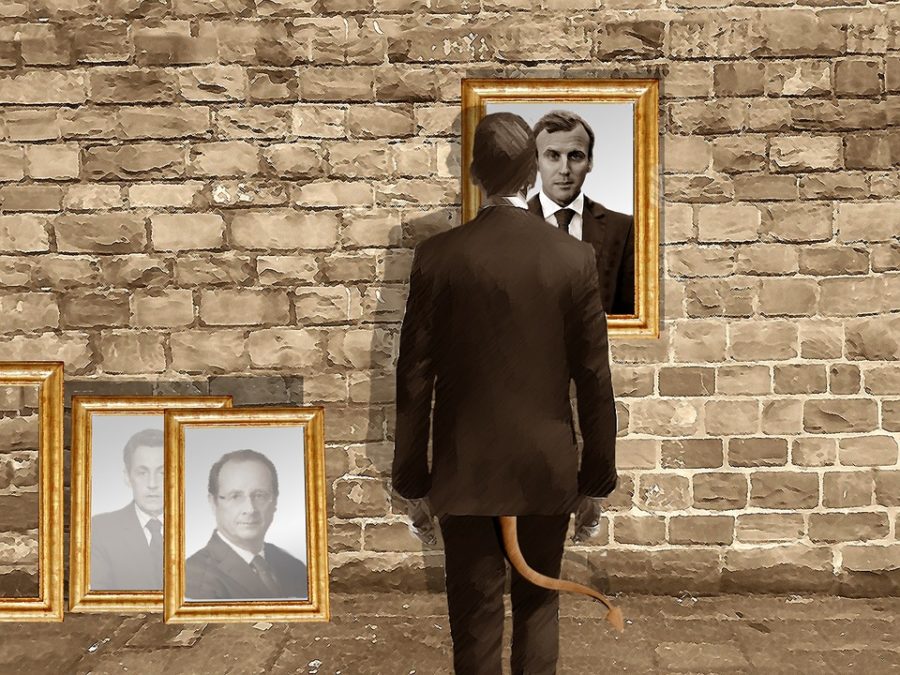
[i] Cillian Sherlock, ‘790,000 people living in poverty in Ireland: Social Justice Ireland’, Irish Examiner, December 19th, 2017.
[ii] Flann O’Brien, The Best of Myles, Dublin, Dalkey Archive Press, 2007.
[iii] Naomi Klein: The Shock Doctrine, New York, Vintage, 2008.

